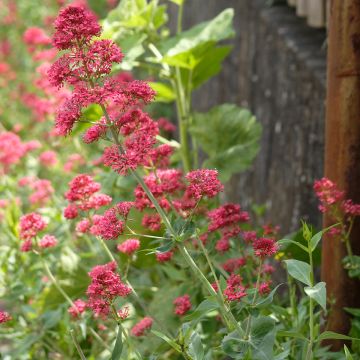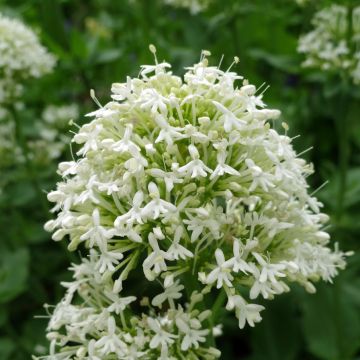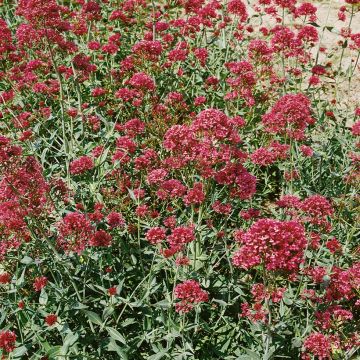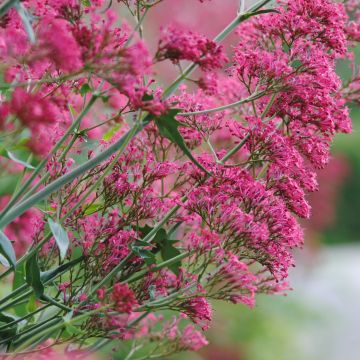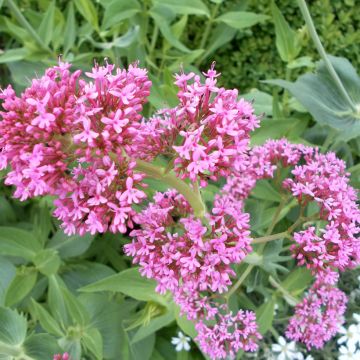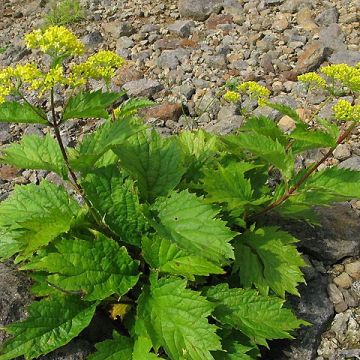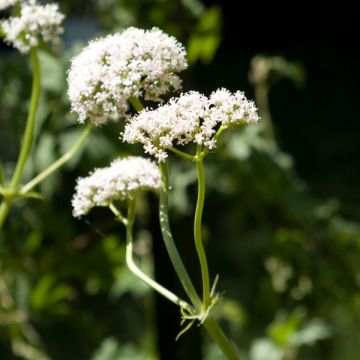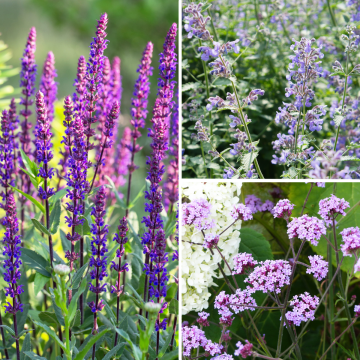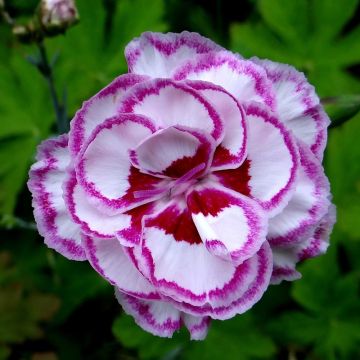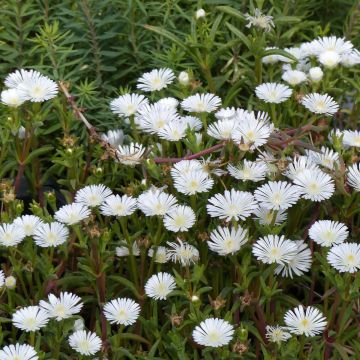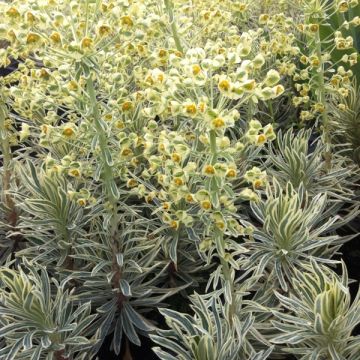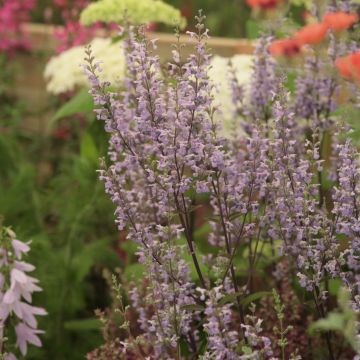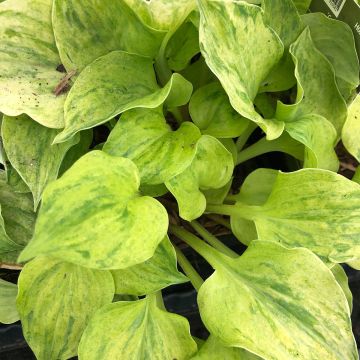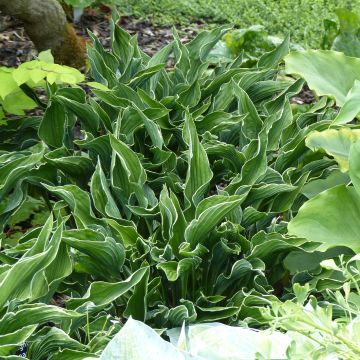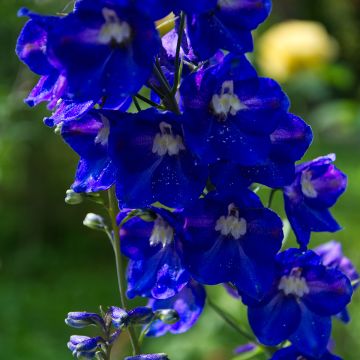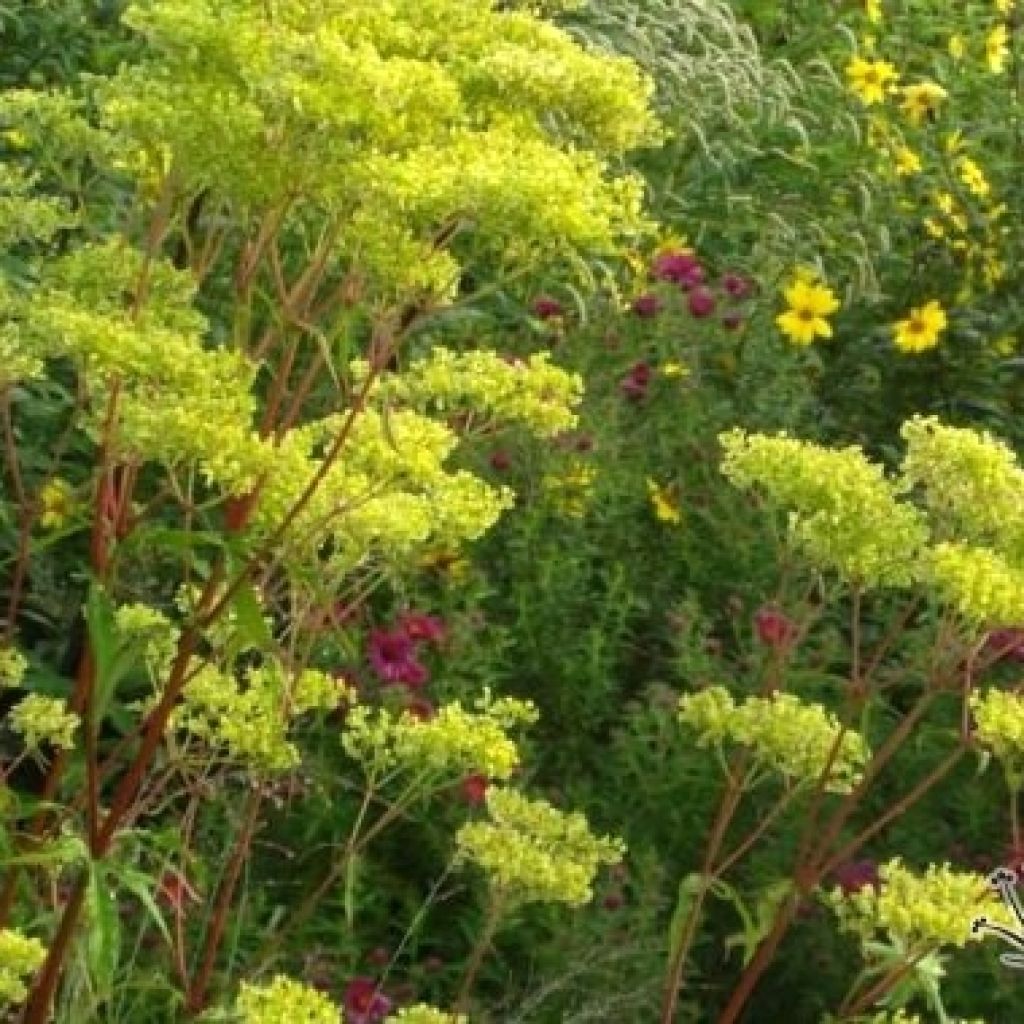

Patrinia monandra
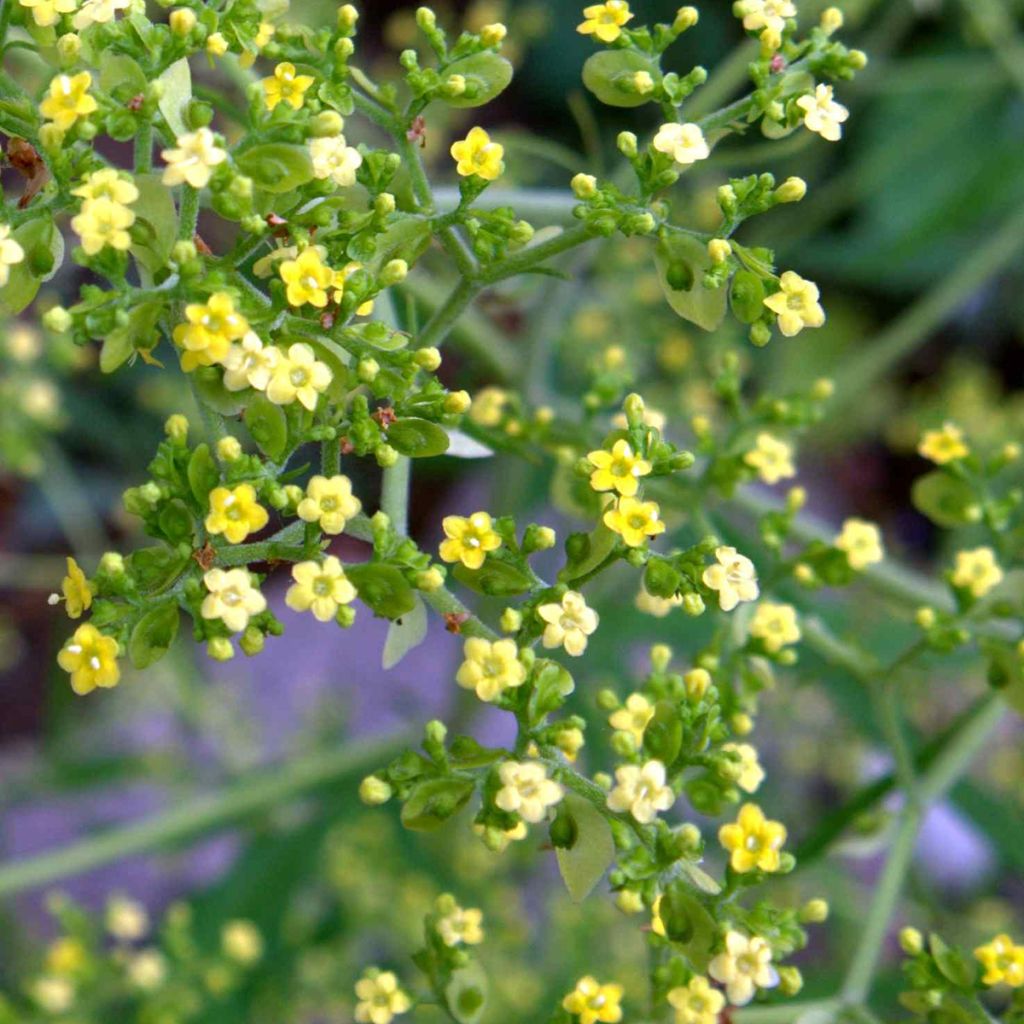

Patrinia monandra
Patrinia monandra
Patrinia monandra
I'm sorry to leave a negative review. The plant was put in the ground in spring this year. It was watered properly but never sprouted. It was supposed to be suitable according to Plantifit.
Christine , 02/09/2024
Special offer!
Receive a €20 voucher for any order over €90 (excluding delivery costs, credit notes, and plastic-free options)!
1- Add your favorite plants to your cart.
2- Once you have reached €90, confirm your order (you can even choose the delivery date!).
3- As soon as your order is shipped, you will receive an email containing your voucher code, valid for 3 months (90 days).
Your voucher is unique and can only be used once, for any order with a minimum value of €20, excluding delivery costs.
Can be combined with other current offers, non-divisible and non-refundable.
Home or relay delivery (depending on size and destination)
Schedule delivery date,
and select date in basket
This plant carries a 12 months recovery warranty
More information
We guarantee the quality of our plants for a full growing cycle, and will replace at our expense any plant that fails to recover under normal climatic and planting conditions.
Would this plant suit my garden?
Set up your Plantfit profile →
Description
Patrinia monandra (synonym P. formosana) is a large perennial native to Asia that deserves to be planted more in gardens. Combining robustness and generosity, this beautiful plant also has a very natural charm, making it easy to associate with many other flowers in the garden. Its long summer flowering, composed of multiple umbels of pale yellowish-green flowers, remains decorative even when the seeds are forming. Hardy and easy to grow in a good, moist garden soil, it brings verticality and lightness to flower and shrub beds, in partial shade or in full sun.
Patrinia monandra is widespread in many Chinese provinces, Taiwan, and the Indian region of Bhutan, where it can be found on grassy slopes, in thickets, deciduous forests, forest edges, and along roadsides, up to 3,100m (10000ft) altitude. It belongs to the Caprifoliaceae family and not Valerianaceae. It is a herbaceous plant with a perennial rootstock, short-lived, with both horizontal, oblique, and vertical taproots. Its vegetation emerges in spring, forming a bushy and compact tuft of leafy stems that reach an average height of 40cm (16in) with a diameter of 30cm (12in). The stems lignify at the base and bear leaves often divided into 2 or 3 pairs of segments, with a slightly swollen and toothed lamina. Flowering occurs from July to September. From the foliage emerge highly branched flower stems reaching 1.20m (4ft) in height, coloured brick-red. At the end of each branching, there is an inflorescence in corymbs measuring up to 25cm (10in) in diameter. It consists of tiny pale yellow-green flowers, very nectar-rich and honey-producing. The above-ground vegetation is deciduous and dries up in winter. This Patrinia monandra can self-seed, but young plants considered unwanted can be easily removed.
Patrinia monandra is planted in English-style or naturalistic, country or romantic flower beds, in garden soils that are rich and slightly moist in summer. It accompanies many other light perennials such as Buenos Aires Verbena, mulleins, Sanguisorba, Agastache, thistles, and of course, grasses (Panicum, Stipa, Eragrostis, small Miscanthus...). It also lightens the flowering of white, yellow, or orange perpetual roses. Its flowers, fresh or dried, can also be used in floral arrangements.
Report an error about the product description
Flowering
Foliage
Plant habit
Botanical data
Patrinia
monandra
Caprifoliaceae (Valerianaceae)
China
Other Centranthus - Valerian
View all →Planting and care
Patrinia monandra is a perfectly cold-resistant plant, which can be planted in full sun or partial shade. It thrives in ordinary garden soil that is well loosened, not too heavy, rather rich, and remains somewhat moist even in summer. Once well established, it requires very little maintenance, except for occasional watering during dry spells. It sometimes self-seeds without becoming invasive, and any unwanted young plants can be easily removed. Beware of attacks from slugs and snails, which can devour the young shoots and be fatal to the young plants.
Planting period
Intended location
Care
-
, onOrder confirmed
Reply from on Promesse de fleurs
Similar products
Haven't found what you were looking for?
Hardiness is the lowest winter temperature a plant can endure without suffering serious damage or even dying. However, hardiness is affected by location (a sheltered area, such as a patio), protection (winter cover) and soil type (hardiness is improved by well-drained soil).

Photo Sharing Terms & Conditions
In order to encourage gardeners to interact and share their experiences, Promesse de fleurs offers various media enabling content to be uploaded onto its Site - in particular via the ‘Photo sharing’ module.
The User agrees to refrain from:
- Posting any content that is illegal, prejudicial, insulting, racist, inciteful to hatred, revisionist, contrary to public decency, that infringes on privacy or on the privacy rights of third parties, in particular the publicity rights of persons and goods, intellectual property rights, or the right to privacy.
- Submitting content on behalf of a third party;
- Impersonate the identity of a third party and/or publish any personal information about a third party;
In general, the User undertakes to refrain from any unethical behaviour.
All Content (in particular text, comments, files, images, photos, videos, creative works, etc.), which may be subject to property or intellectual property rights, image or other private rights, shall remain the property of the User, subject to the limited rights granted by the terms of the licence granted by Promesse de fleurs as stated below. Users are at liberty to publish or not to publish such Content on the Site, notably via the ‘Photo Sharing’ facility, and accept that this Content shall be made public and freely accessible, notably on the Internet.
Users further acknowledge, undertake to have ,and guarantee that they hold all necessary rights and permissions to publish such material on the Site, in particular with regard to the legislation in force pertaining to any privacy, property, intellectual property, image, or contractual rights, or rights of any other nature. By publishing such Content on the Site, Users acknowledge accepting full liability as publishers of the Content within the meaning of the law, and grant Promesse de fleurs, free of charge, an inclusive, worldwide licence for the said Content for the entire duration of its publication, including all reproduction, representation, up/downloading, displaying, performing, transmission, and storage rights.
Users also grant permission for their name to be linked to the Content and accept that this link may not always be made available.
By engaging in posting material, Users consent to their Content becoming automatically accessible on the Internet, in particular on other sites and/or blogs and/or web pages of the Promesse de fleurs site, including in particular social pages and the Promesse de fleurs catalogue.
Users may secure the removal of entrusted content free of charge by issuing a simple request via our contact form.
The flowering period indicated on our website applies to countries and regions located in USDA zone 8 (France, the United Kingdom, Ireland, the Netherlands, etc.)
It will vary according to where you live:
- In zones 9 to 10 (Italy, Spain, Greece, etc.), flowering will occur about 2 to 4 weeks earlier.
- In zones 6 to 7 (Germany, Poland, Slovenia, and lower mountainous regions), flowering will be delayed by 2 to 3 weeks.
- In zone 5 (Central Europe, Scandinavia), blooming will be delayed by 3 to 5 weeks.
In temperate climates, pruning of spring-flowering shrubs (forsythia, spireas, etc.) should be done just after flowering.
Pruning of summer-flowering shrubs (Indian Lilac, Perovskia, etc.) can be done in winter or spring.
In cold regions as well as with frost-sensitive plants, avoid pruning too early when severe frosts may still occur.
The planting period indicated on our website applies to countries and regions located in USDA zone 8 (France, United Kingdom, Ireland, Netherlands).
It will vary according to where you live:
- In Mediterranean zones (Marseille, Madrid, Milan, etc.), autumn and winter are the best planting periods.
- In continental zones (Strasbourg, Munich, Vienna, etc.), delay planting by 2 to 3 weeks in spring and bring it forward by 2 to 4 weeks in autumn.
- In mountainous regions (the Alps, Pyrenees, Carpathians, etc.), it is best to plant in late spring (May-June) or late summer (August-September).
The harvesting period indicated on our website applies to countries and regions in USDA zone 8 (France, England, Ireland, the Netherlands).
In colder areas (Scandinavia, Poland, Austria...) fruit and vegetable harvests are likely to be delayed by 3-4 weeks.
In warmer areas (Italy, Spain, Greece, etc.), harvesting will probably take place earlier, depending on weather conditions.
The sowing periods indicated on our website apply to countries and regions within USDA Zone 8 (France, UK, Ireland, Netherlands).
In colder areas (Scandinavia, Poland, Austria...), delay any outdoor sowing by 3-4 weeks, or sow under glass.
In warmer climes (Italy, Spain, Greece, etc.), bring outdoor sowing forward by a few weeks.






























